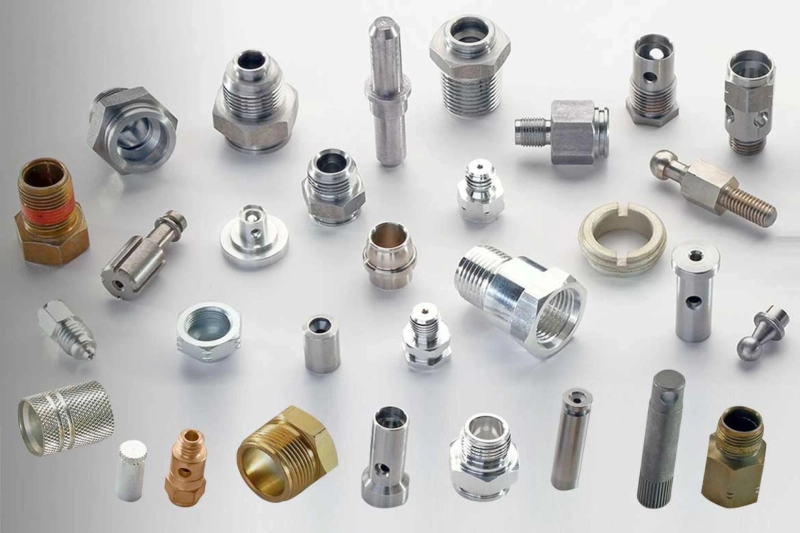What are Precision Turned Components?
Precision turned components are small yet crucial parts widely utilized in various industries such as automotive, defence, medical, aerospace, and electronics. These parts are manufactured by using two methods: one is manual, and the other one is CNC machining. The exactness and accuracy these components offer are paramount in ensuring the efficiency and functionality of the end product.
With the advancement of technology, precision turned components have become increasingly vital in the manufacturing industry, and their demand continues to grow as various industries require high-quality products that operate with accuracy.
Precision turned components are small and intricately manufactured parts made from various materials such as aluminium, copper, brass, steel, and plastic. These components are manufactured using advanced manufacturing equipment such as CNC (Computer Numerical Control) lathes, milling machines, and automated drilling machines. As the name suggests, precision turned components are manufactured with high precision and accuracy, which is why they are used in various industries that require exact measurements.
These components can have different shapes and sizes, such as cylindrical, conical, and spherical, and each of them plays an important role in the end product. They are used in various applications such as connectors, couplings, bushings, valves, fittings, pins, screws, etc. Precious turned components ensure the functionality and efficiency of the end product by performing their function with great precision and accuracy.
The Process of Manufacturing Precision Turned Components
The manufacturing process of precision turned components is intricate and delicate, demanding high precision, accuracy, and expertise. The process can be divided into several stages, and each stage plays an important role in ensuring the quality of the end-product.
The first stage is the design and engineering stage, where the specifications, drawings, and data are prepared with the help of advanced software such as CAD (Computer-Aided Design) and CAM (Computer-Aided Manufacturing). Once the design is finalized, the next stage is the material selection, which largely depends on the application of the component.
The next stage is machining, where the component is manufactured using CNC machines. In CNC machining, the machine is programmed to execute precise movements and cuts according to the design specifications. This allows for greater accuracy, consistency, and speed in the manufacturing process.
The final stage is the inspection and quality control stage, where the component is thoroughly inspected to ensure that it meets the design specifications and quality standards. In this stage, the component is checked for its size, shape, surface finish, and other parameters to ensure that it meets the quality standards.
The Importance of Quality Control in Precision Turned Components
The precision turned components play a critical role in the functionality and efficiency of the end product. Therefore, ensuring they are manufactured with utmost precision and accuracy is important. Quality control is an important aspect of manufacturing the precision turned component since even minor deviations from the specifications can lead to major issues in the end product.
Quality control measures ensure that the components meet the design specifications, quality standards, and other parameters such as surface finish, cleanliness, and strength. Quality control involves various inspections and tests, such as dimensional inspection, visual inspection, material verification, and functional testing.
Benefits of Using Precision Turned Components
High Precision: Precision turned components are manufactured with great precision and accuracy, ensuring they perform their function highly and consistently.
Greater Efficiency: Using precision turned components in manufacturing can lead to greater efficiency and productivity since these components are designed to perform their function accurately.
Cost-effective: Precision turned components are cost-effective compared to other manufacturing methods since the manufacturing process is automated, reducing labour costs and increasing productivity.
Customizability: Precision turned components can be manufactured in different sizes, shapes, and materials to cater to the specific needs of the end product.
Conclusion:
Precision turned components play an important role in various industries by providing high-quality products that require accuracy and precision. These components are manufactured using advanced techniques such as CNC machining and are subject to rigorous quality control measures to ensure they meet the design specifications and quality standards.
Manufacturing precision turned components demands high precision, accuracy, and expertise, and using these components offers numerous benefits such as high precision, greater efficiency, cost-effectiveness, and customizability. These benefits make precision turned components an important element in the manufacturing industry, and their demand continues to grow as various industries require high-quality products that operate with accuracy.


